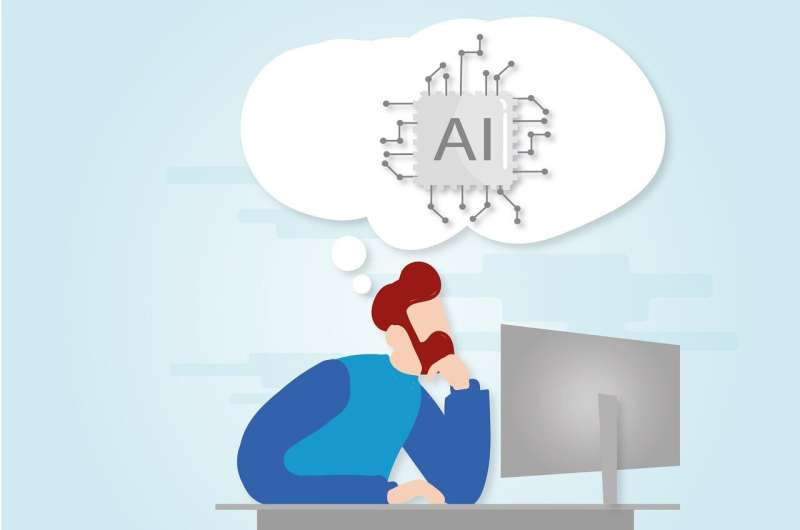This article has been reviewed according to Science X's editorial process and policies. Editors have highlighted the following attributes while ensuring the content's credibility:
fact-checked
peer-reviewed publication
proofread
Looking for cancer information: Can ChatGPT be counted on?

A study in the Journal of The National Cancer Institute Cancer Spectrum looked at chatbots and artificial intelligence (AI), as they become popular resources for cancer information. They found these resources give accurate information when asked about common cancer myths and misconceptions. In the first study of its kind, Skyler Johnson, MD, physician-scientist at Huntsman Cancer Institute and assistant professor in the department of radiation oncology at the University of Utah (the U), evaluated the reliability and accuracy of ChatGPT's cancer information.
Using the National Cancer Institute's (NCI) common myths and misconceptions about cancer, Johnson and his team found that 97% of the answers were correct. However, this finding comes with some important caveats, including a concern amongst the team that some of the ChatGPT answers could be interpreted incorrectly. "This could lead to some bad decisions by cancer patients. The team suggested caution when advising patients about whether they should use chatbots for information about cancer," says Johnson.
The study found reviewers were blinded, meaning they didn't know whether the answers came from the chatbot or the NCI. Though the answers were accurate, reviewers found ChatGPT's language was indirect, vague, and in some cases, unclear.
"I recognize and understand how difficult it can feel for cancer patients and caregivers to access accurate information," says Johnson. "These sources need to be studied so that we can help cancer patients navigate the murky waters that exist in the online information environment as they try to seek answers about their diagnoses."
Incorrect information can harm cancer patients. In a previous study by Johnson and his team published in the Journal of the National Cancer Institute, they found that misinformation was common on social media and had the potential to harm cancer patients.
The next steps are to evaluate how often patients are using chatbots to seek out information about cancer, what questions they are asking, and whether AI chatbots provide accurate answers to uncommon or unusual questions about cancer.
More information: Skyler B Johnson et al, Using ChatGPT to evaluate cancer myths and misconceptions: artificial intelligence and cancer information, JNCI Cancer Spectrum (2023). DOI: 10.1093/jncics/pkad015
Skyler B Johnson et al, Cancer Misinformation and Harmful Information on Facebook and Other Social Media: A Brief Report, JNCI: Journal of the National Cancer Institute (2021). DOI: 10.1093/jnci/djab141

















